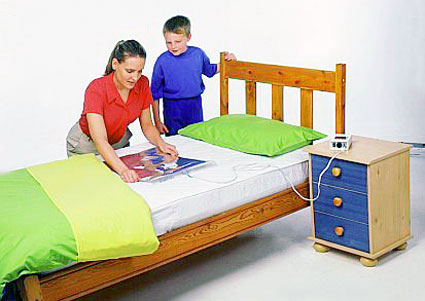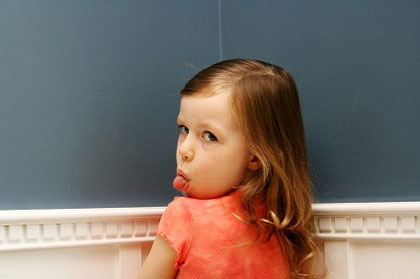Bladder control is a skill that develops at different rates in different children. It may take a few years before your child can keep from urinating for ten or more hours through the night. How to handle this situation is a concern for parents. Read on.Each child may take her own time to develop bladder control. Day-time bladder control can be developed in children earlier than the night-time
bladder control. A child may be able to control his or her bladder by the age of 3. Some children may develop it earlier whereas some may take some more time. When it comes to night-time bladder control, children may develop it by the age of 4 or 5. However, if a child is more than 5 years old and still wets the bed at night, it can be a cause of concern. But with a doctor’s assistance and few simple remedies, the problem of
bed-wetting in children can be resolved easily. Let us take a look at some concerns of parents related to bed-wetting in children.
Why does my child still wet her bed?
It is not unusual for a child under the age of four to wet her bed occasionally. One in ten boys wet their bed at the age of five. Bladder control is a skill that develops at different rates in different children. It may take a few years before your child can keep from urinating for ten or more hours through the night. Anxiety could be a cause for bed-wetting. Fear of a monster, a bad dream or fear of something can also be some reasons for bed-wetting in children. A change of circumstances like the arrival of a new baby, or a move to a new place can also trigger this reaction.
What can I do to help?
Discourage the intake of fluids an hour before bedtime. Ensure that your child empties her bladder before she goes to bed. Keep a
potty beside her bed so that if she needs to urinate at night she does not have to go all the way to the bathroom. Make sure that her nightwear is easily removable. Leave a night light on so that your child can see if she wakes up at night. Put a rubber sheet on her bed and cover that with a sheet.
Do not make an issue of bed-wetting. Never draw attention to wet beds. Change the sheets with a minimum of fuss. Do not reprimand your child. This will make her feel inadequate.
Why does my child wet the bed occasionally?
The child may be wetting the bed occasionally as he or she may be coping with the problem of secondary bed-wetting. The problem of bed-wetting in children can be divided in two types which are primary bed-wetting and secondary bed-wetting. Primary bed-wetting is the kind of bed-wetting which continues during the early childhood without any break. In this case the child wets the bed regularly for the considerable period of time. The case of primary bed-wetting can be attributed to the immaturity of nervous system. This means that child is unable to sense the feeling of fullness of bladder while he or she is asleep.
Secondary bed-wetting on the other hand is the problem where the child wets the bed at night occasionally. This issue may arise due to medical or emotional problems in children. Medical problems like pinworms, urinary tract infection, sleep apnoea etc. are usually responsible for occasional bed-wetting in children. Occasional or secondary bed-wetting can also be a sign that a child is undergoing any stress due to family problems, fights between parents, bullying at school, exam stress or any other
emotional problem.
Never make your child feel guilty of this habit. With parent’s support some simple remedies can help children develop night-time bladder control. At the same time
parent’s love, care and support are also very necessary along with a doctor’s assistance to help the child deal with the problem of secondary bed-wetting.































